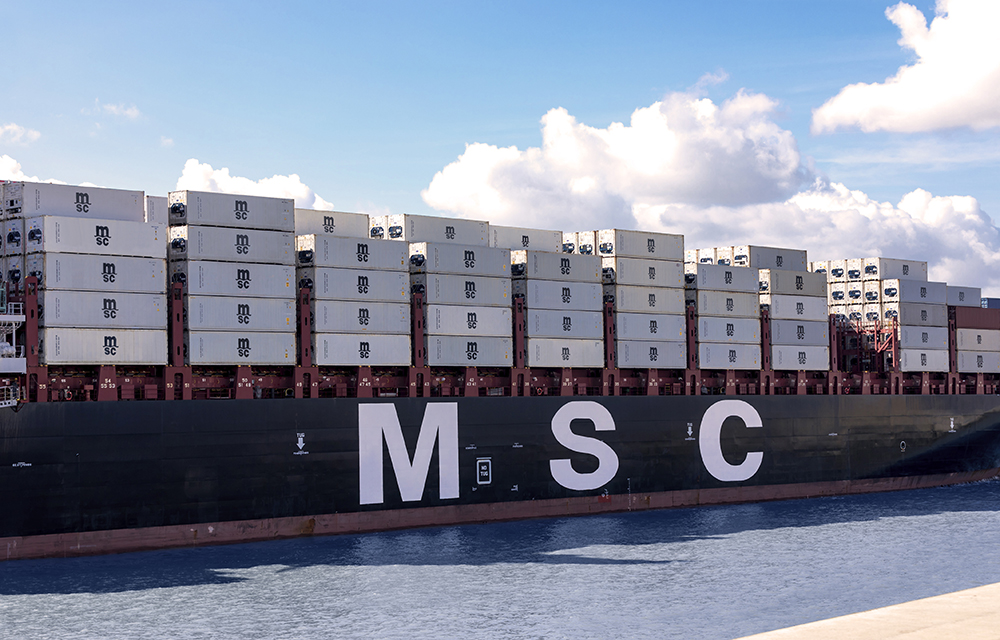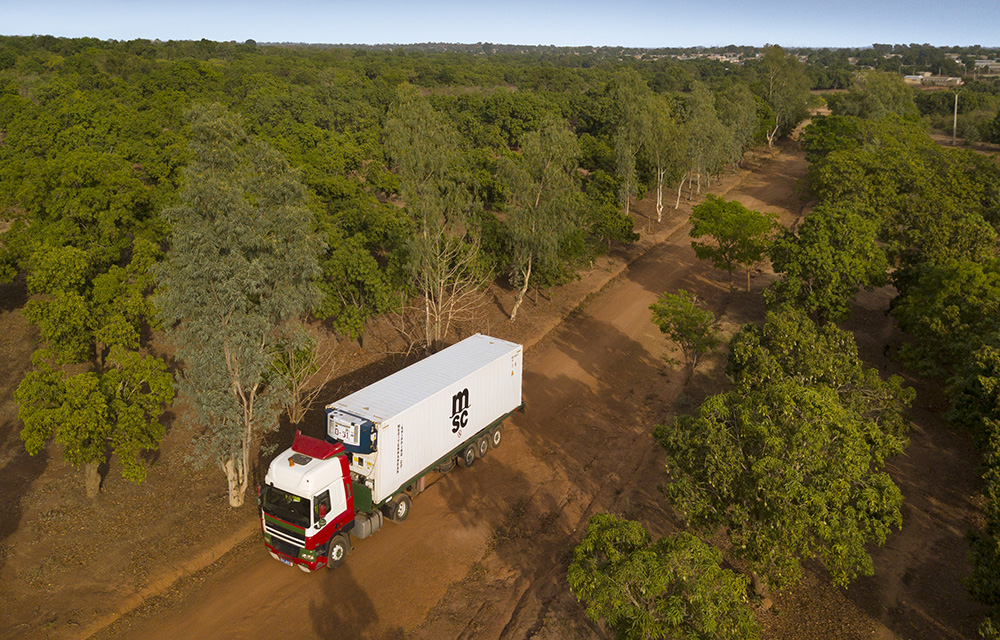
/en/newsroom/stories/msc-a-key-driver-in-a-fruitful-partnership-between-africa-and-europe
MSC, a Key Driver in a Fruitful partnership Between Two Continents: Africa and Europe
04/04/2023

Africa is a fruit powerhouse and Europe is loving it. Over the past few years, the African continent has been providing a significant portion of Europe's fresh fruit consumption, and it's not slowing down any time soon. These delicious and nutritious fruits have made their way into European kitchens, making people healthier and happier than ever before.
Africa’s fruit production:
The 54-country continent is the place to be for tropical fruits, with bananas, mangoes, pineapples, avocados, and citrus fruits being some of the major exports from many African countries. Not only do these fruits bring in foreign exchange earnings for the countries, but they also provide jobs for farmers and their families throughout the value chain, from farming and harvesting to processing, transportation, and marketing.
The fruit industry does more than just make money and create jobs. It also helps build better roads and transportation systems, which can improve the economy of the area. As the industry grows, more small farmers can sell their produce in global markets, which helps them make more money and helps their countries develop. With good shipping and exporting, countries like Zimbabwe, Kenya, Tanzania, Senegal, and Côte d'Ivoire can easily sell their fruits to Europe and make more money for their farmers and their families.
Annick Okeni, import and export reefer manager at MSC Côte d'Ivoire says, “Here in Côte d'Ivoire, we are one of the big players in the African fruit industry, with mangoes and bananas accounting for a whopping 84% of their fruit exports. Thanks to improved infrastructure and increased investment in the sector, the quality and quantity of the country's fruit exports have increased, making them a reliable supplier for Europe's fruit market.”
Senegal is another major player in the African fruit industry, with a focus on sustainable production and improved supply chain management. Caroline Diagne, trade coordinator at MSC adds, “The fruit industry has doubled its exports in four years and their operators are finding ways to integrate with new distribution channels as a result of market globalization. They produce a variety of fruits including mangoes, bananas, citrus, and papayas, and have become a competitive player in the European fruit market.”
Patrick Malanga, marketing manager at MSC Kenya, highlights Kenya's impressive presence in the fruit industry. He notes that the country is focusing on exporting its wide variety of fruits, including pineapples, avocados, mangoes, and bananas, to Europe and the Middle East. With MSC's expertise, the local industry can efficiently transport its delicious fruits to these markets. MSC provides comprehensive packages, including local knowledge, suitable reefer equipment, and competitive inland transport, to support the industry.
“Tanzania's fruit industry has been flourishing in recent years, with avocado and pineapples being the leading exports, along with mangoes, oranges, lemons, and bananas,” according to Paskal Madede, sales manager at MSC Tanzania. Also, with the rehabilitation of Dar es Salaam port nearing completion, the future is looking bright for the transportation of fresh produce in Tanzania.
Zimbabwe also has a growing fruit industry with a focus on avocado production, litchis, pineapples, bananas, and oranges. Although the main market has been the local market, the emergence of Middle East and Gulf markets is changing this. “Zimbabwe exports blueberries and peas to European markets, and although Zimbabwe is a landlocked country, it has fruits like oranges and avocados being hauled into South Africa for onward freight to the Far East, Europe, and the Middle East. Zimbabwe’s producers are optimistic as more businesses invest in fruit and vegetable production for export,” adds Phumzile Ntshingila, commercial manager at MSC Zimbabwe.
The European Union (EU) does favour African produced fruits, and is the largest market for African horticultural exports, with a total value of €3.3 billion in 2015. Europe imported around 2.7 million tonnes of fresh fruit from Africa in 2020, with a total value of €2.5 billion.
The challenges faced by African fruit producers:
African fruit producers face many problems that make it hard for them to succeed. The roads, ports, and transportation can be challenging, which makes it difficult to get their products to market. This can make the fruit go bad and means the farmers can't make as much money. Also, farmers may not be able to get the money they need to grow their business or learn about new technology. Climate change is also a challenge, which can change the timing of planting and harvesting and make it harder to grow high-quality fruit.
How MSC is driving growth in Africa:
MSC is the leading shipping company in Africa to European countries. It supports African producers by providing reliable transportation services and optimal conditions for machines and structures. MSC also provides advanced and modern reefer containers to maintain fruit quality for longer periods, and direct service to meet customer needs with short transit times.
The shipper can transport tropical fruits efficiently to different markets using their new services. They have for instance a direct service from Dakar to Northwest Continent , every 10 days, as well as deliver directly to Valencia in Spain, which takes six days. They also have strong land logistics support, with dedicated trucks equipped and reliable to deliver fresh goods in superb condition.
In conclusion, it is worth noting that Africa's fruit industry is booming at the moment, and Europe wants more of its fresh produce. These fruits are not only delicious but also provide economic opportunities for African countries, while they offer healthy and nutritious options for Europeans.
You may also like:
MSC’s reefer solutions for your fruit and vegetables
MSC is Ready to Ship Melons from Senegal
MSC Connects Senegal with North Europe in a Week